
The state of plastics
Many Co-op owners and shoppers have shared their interest in reducing plastic usage in the store. From bioplastics, to compostable plastics to recycling options, the Ashland Food Co-op continues to research what works best as we move towards our goal of being a zero waste store. Here is where we stand.
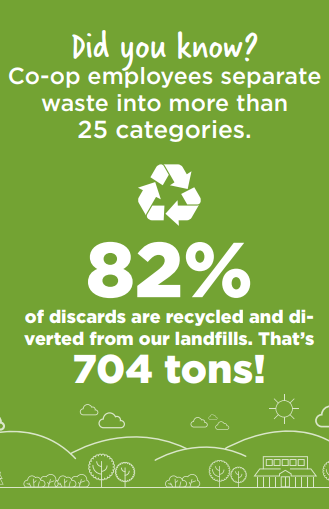
Right now, there is a trade-off in terms of food and plastic waste. Plastic is extraordinarily unique in its ability to preserve food and prevent spoilage and waste. But the trade-off is its very long lifespan.
Reducing plastic waste - by using alternative storage materials, or going package-free when possible - results in more food spoilage and waste, which can sometimes have a bigger ‘carbon footprint’ than plastic use alone.
The best way to summarize: as of March 2019, no perfect solution for plastic alternatives exist.
This isn't meant to make excuses for waste - as you may know, we already divert over 80% of our waste from the landfill. But it is important to know where things stand, and what some of the many decision-making factors are, that go into this debate about containers and plastic. Let’s break it down:
Bioplastics
Bioplastics often come from unsustainable sources - for example, monocropped GMO corn that could be used to feed people, or is grown on the other side of the country and requires a large carbon input to deliver.
As the name implies, bioplastics often have lifespans as long as petroleum plastics - they’re still plastic! The “end of life” assessment for bioplastics is not much better than petroleum plastics. For example, a single-use plastic fork made from GMO corn will still end up in the landfill.
Though there are recyclable and compostable bioplastics, they often require specialized machinery at waste disposal sites to be broken down. Our region does not currently have that infrastructure, and the additional carbon footprint to ship these materials elsewhere can quickly outweigh the ‘bio’ benefits.
The Co-op continues to explore options in this area: more readily compostable bioplastic bags are hitting the market which we will continue to test.
Alternatives to plastic
AFC has brought in cardboard packaging for some produce, like cherry tomatoes and strawberries. And yes, they are completely recyclable!
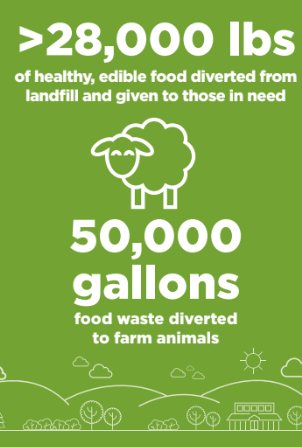
However, it can be difficult for customers to visually connect with the product - can you tell how juicy and ripe those strawberries are through the cardboard? Without that visual connection, a shopper may be hesitant to buy the product, inadvertently leading to more food waste (because the product stays on the shelf longer).
Cardboard also leads to more spoilage because of the lack of light and its ability to carry moisture (leading to molding).
Is generating more food waste an acceptable trade-off to having recyclable and compostable packaging? This is another instance where analyzing production inputs and requirements, instead of just ‘end-of-life’ issues for packaging, gives a better idea of the sustainability of a packaging type.
Plastics recycling
Many plastics are no longer being accepted by local waste management services. Generally, white, rigid plastics (example: yogurt containers) are still being recycled; clear, non-rigid plastics (soda bottles, salsa containers) are not. So buy smart!
Clamshells are a common area of concern. The Co-op is very lucky to be able to recycle plastic clamshells from products that were purchased at AFC. You can bring those clamshells back into the store for recycling. Even better, this recycling is more carbon neutral because the clamshells hitch a ride back to Eugene on existing truck routes (rather than a one-off transit run).
If you're purchasing greens, you can also bring your own container to fill from the bulk spinach and baby greens bins. Alternatively, OrganicGirl salad clamshells are made of 100% recycled plastic.
Our commitment
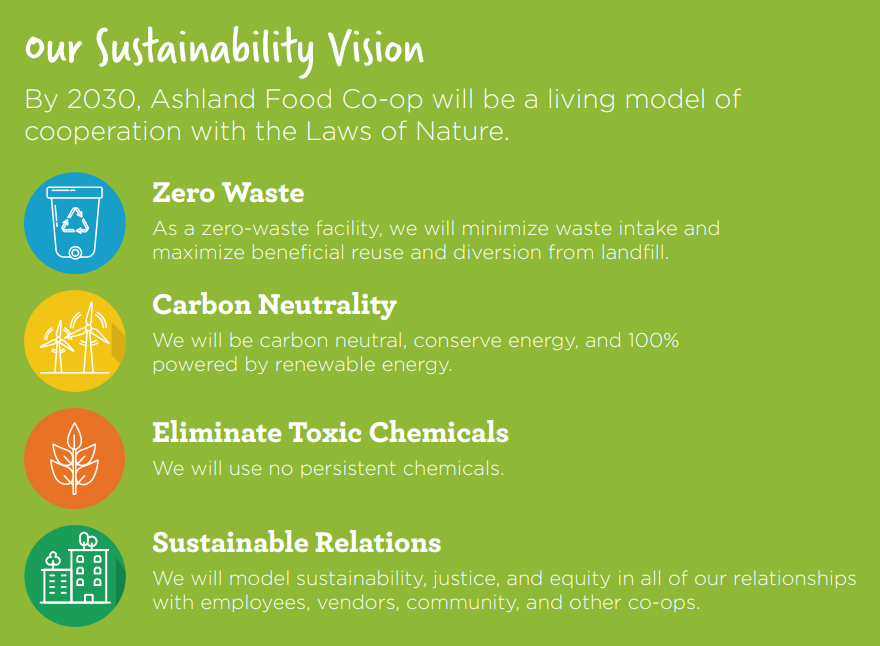
It’s easy to see that with the options available right now, there’s always a trade-off. In our own store and through the National Co-op Grocers network, we continue to look for a solution that is not petroleum-based, non-GMO, and that can be recycled or composted fully. When that solution arrives, we will be ready!
Right now, you should aim to reduce your overall plastic consumption when making purchasing decisions; choose reusable packaging when you do have to purchase plastic (clear salsa packages make great storage for leftovers); and choose recyclable plastic (white plastic and clamshells) if you think you’ll only get one use out of the packaging.
For some additional reading on the topic of plastics and packaging, check out this report put together by the Oregon Department of Environmental Quality.
More Co-op News
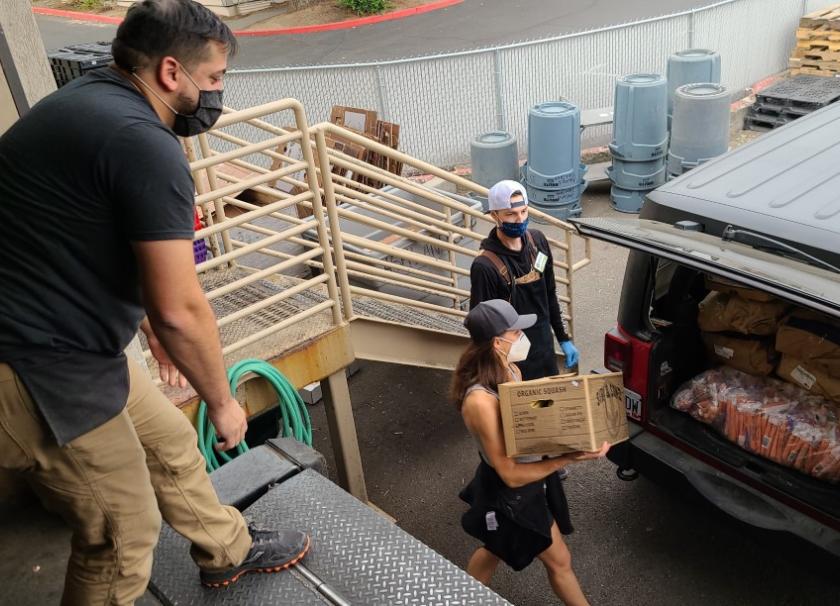
Vendors & businesses donating to relief efforts
From day one of the Almeda Fires, the Co-op team wanted to help the community. They reached out to vendors across the region and country to ask for their help with products, supplies and food to get to the fire victims.
And that help came through in big ways, getting nutritious food to displaced families, home supplies in high demand, and wellness and food for first responders and firefighters. Thank you for supporting these businesses as thanks for their help in our community's relief efforts.

October news at the Co-op
October is typically Co-op month, to highlight how differently cooperatives do business. But instead of talking about the 7 Cooperative Principles, or the ownership benefits of being part of the Co-op, we only need to look at the past four weeks to see what being a cooperative really means.
As part of the co-op family, you've helped the entire community immensely.

Lecture recording: "Nutrition for autism and related conditions"
Lisa Shelton, BioIndividual Nutrition Practitioner & Integrative Nutrition Health Coach, put together this recording to discuss nutrition for autism and related conditions including, ADHD, anxiety, and learning disorders as well as strategies for picky eating.
Click here to watch the lecture at your convenience.
Password: p!=Fw6R7
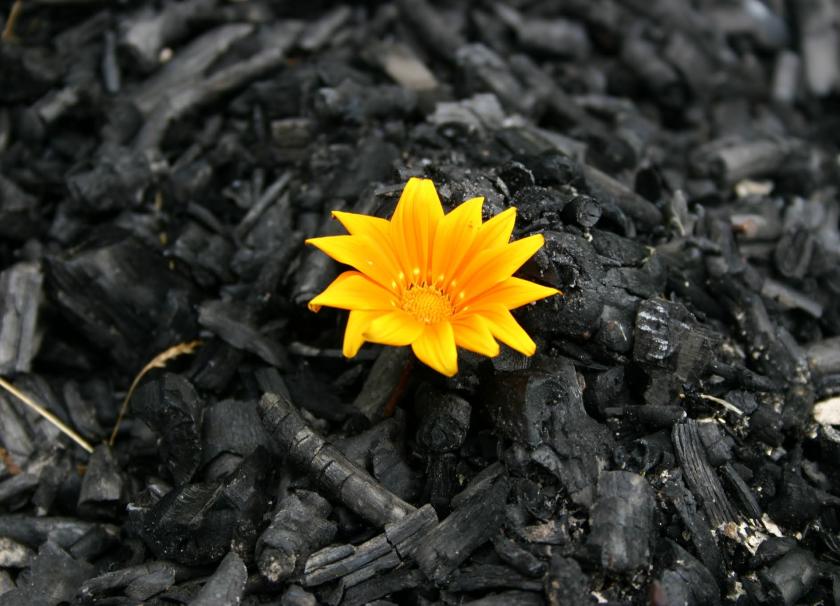
Support Co-op staff to rebuild
The Ashland Food Co-op is dedicated to helping our community and our staff rebuild after the Almeda Fires in early September.
For immediate support, the Co-op gave $1,000 to staff who lost their homes in the fires, as well as $250 for food and other household needs for anyone displaced due to a level 3 evacuation order.
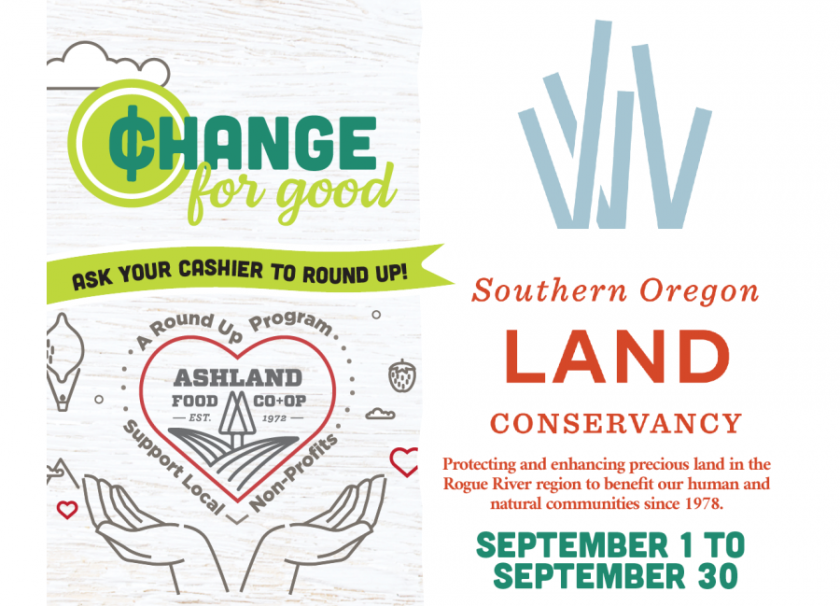
Change for Good in September: Southern Oregon Land Conservancy
For the month of September, Ashland Food Co-op shoppers can round up at the register to support Southern Oregon Land Conservancy. Since 1973, SOLC has been working on multiple fronts to improve land quality and conservation for humans and nature alike. Check out some of the projects below that SOLC has been working on recently. And mark your calendar for Saturday, October 24, as SOLC hosts an Open Lands Day hike and tour on the Rogue River Preserve.
Free Monday Night Lecture - Some Cool Science about Breathing
Join Kelly Martin as she explains how your breath impacts everything from ankle sprains to headaches. Learn why belly breathing isn't good for you, how to breathe correctly, and how to maximize lung health, improve posture, enhance walking efficiency, reduce anxiety, and improve sports performance.
Access the Zoom recording here.
Zoom access password: 2zu@KQWU
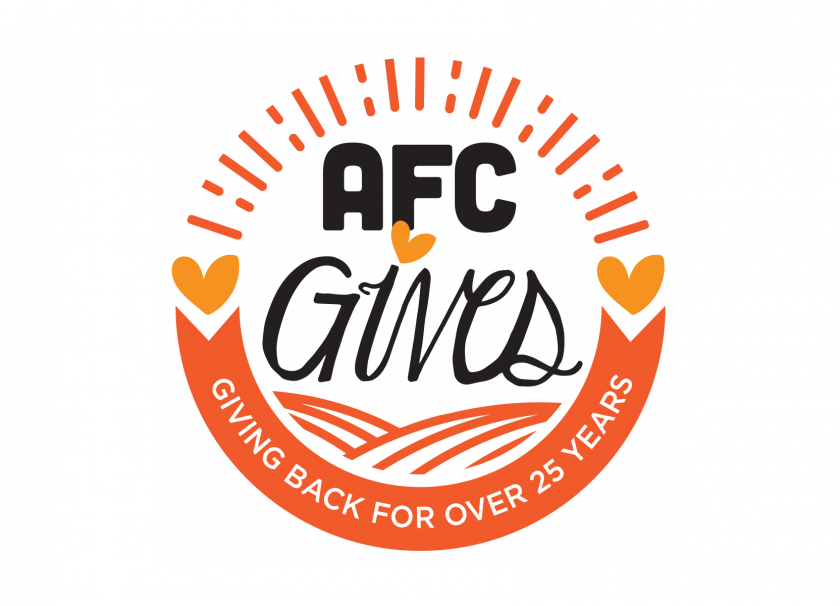
Chatting about community giving with JPR's "Jefferson Exchange"
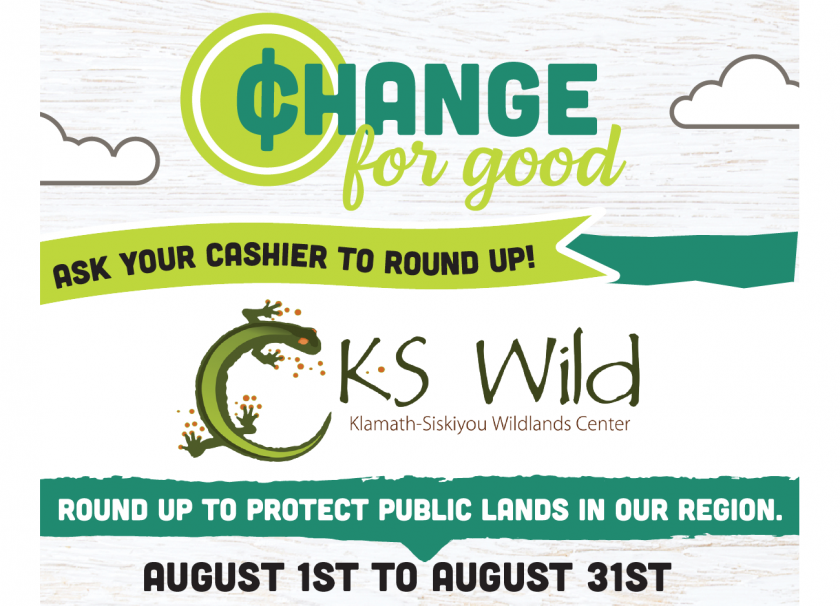
Change for Good in August: KS Wild
This month's featured organization in the new Change for Good register round-up program is KS Wild (short for Klamath-Siskiyou Wildlands Center).

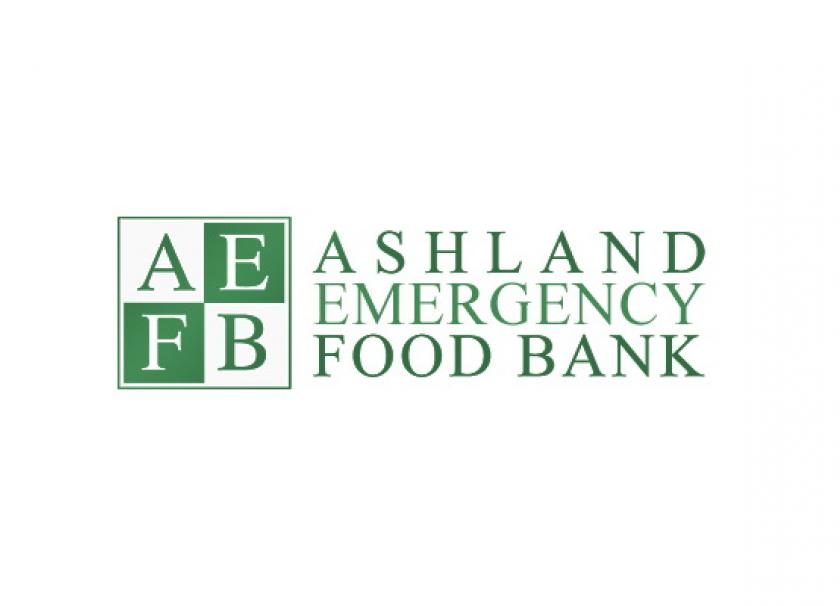
Get to know Ashland Emergency Food Bank
The sixth cooperative principle, "Concern for Community," has become even more important since the pandemic began and economies, locally and globally, started to constrict. To address this, the Board of Directors agreed in April to release 100% of patronage dividends and designate Ashland Emergency Food Bank as a donation option for those dividends - resulting in over $20,000 in donations. And with the early launch of Change for Good register round-up, AEFB was a natural choice to receive round-up donations.

July / August GM Update: Walking the Walk
I wrote at the beginning of the year that the Co-op model of business was a blueprint for the future. The concept of “planet, principles and people before profit” is a guide for how cooperatives can run a successful business that puts more back into the community and local economy than national chains, while using less resources and creating less waste.

2020 Co-op Election Results
2020 Co-op Election Results
Ashland Food Co-op owners voted for three open seats on the Board of Directors, and for ten non-profit organizations for the Change for Good register round-up program.
Click a name below to read more about that Co-op Board member.
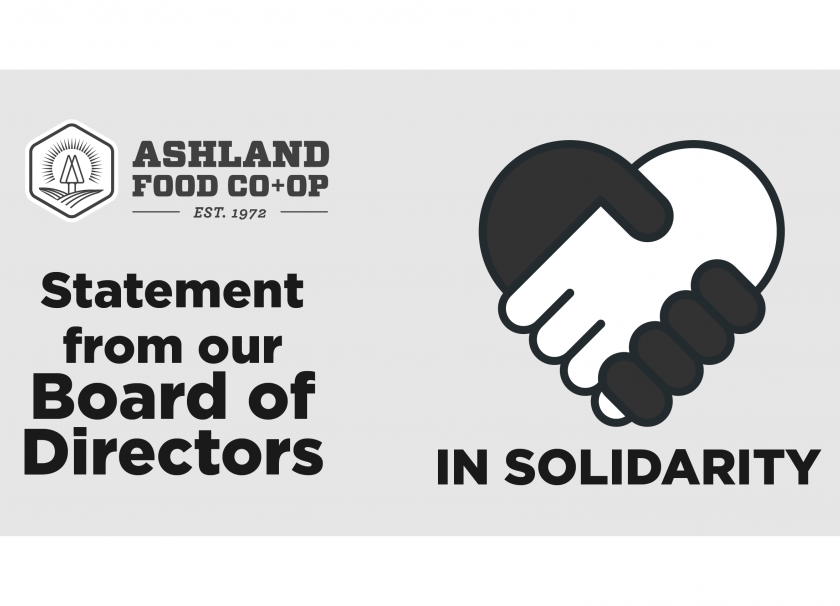
A statement from the Board of Directors on racial justice
Dear Ashland Food Cooperative Family and Community,
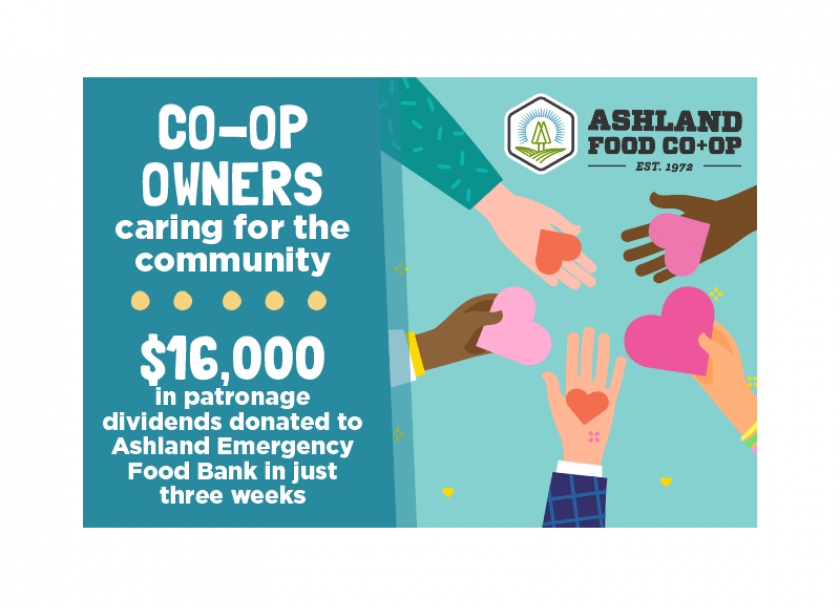
Co-op Owners Step-Up to Support the Ashland Emergency Food Bank!
AFC and AEFB Press Release - Local Strength!
Release Date: 5-26-2020
In April, the Ashland Food Co-op Board of Directors announced to the community that the Co-op would be returning 100% of the 2019 Patronage Dividend to its owners. The 100% Patronage Dividend return to Co-op owners converted to over $628,000.
The Co-op Board felt in this time of great need it was not the right time for the Co-op to put away funds for the future, but rather to support owners fully so they may have more strength to weather these stormy times.
Free Monday Night Lectures - virtual and recorded
Thanks to the many agile and adaptable experts in the Rogue Valley, the much-loved Free Monday Night Lectures live on - even if everything is moving online.
While we miss seeing community members with a joy of learning showing up at the Co-op Classroom, we hope these recordings teach and inspire you.

.jpg)